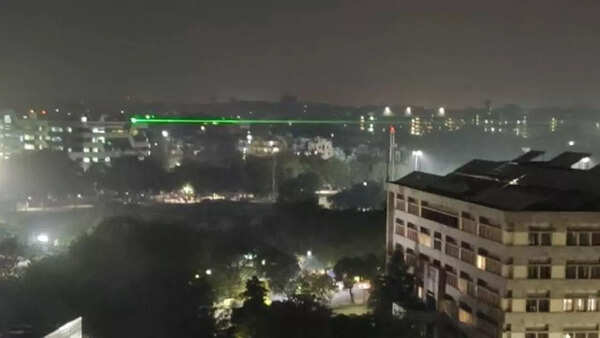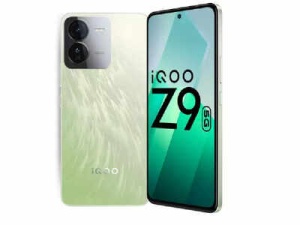In an increasingly digital world where systems governing critical infrastructure like banking and defense are susceptible to cyber threats, the rise of quantum computing poses a significant challenge to traditional encryption methods. Quantum computers possess the potential to crack complex mathematical codes, rendering conventional cryptographic practices obsolete. In response to this looming threat, global efforts are underway to develop quantum-safe communication networks, with India emerging as a key player.
Quantum communication, once relegated to the realm of science fiction, holds profound real-world implications. As India progresses towards establishing a quantum internet, sensitive data, including financial details and health records, could be secured with unbreakable codes. Spearheaded by the Indian Space Research Organisation (ISRO) and the Defence Research and Development Organisation (DRDO), India is not only participating in the quantum revolution but also actively shaping its trajectory.
India's proactive approach to the quantum challenge is led by ISRO and DRDO, two pivotal agencies driving innovation in secure communication.

ISRO has successfully demonstrated free-space quantum communication over a distance of 300 meters, encrypting a live video conference using quantum keys. This achievement serves as a crucial stepping stone towards establishing satellite-based quantum communication, enabling secure information transmission across vast distances.
DRDO, in collaboration with IIT-Delhi, has achieved a breakthrough in secure quantum communication, transmitting entangled photons over free-space optical links spanning 1 kilometer. The system achieved a secure key exchange rate of 240 bits per second with a negligible error rate, facilitating real-time quantum encryption.
Furthermore, DRDO has conducted experiments involving quantum key distribution over 100 km of commercial optical fiber, confirming the readiness of India's infrastructure to support scalable quantum cybersecurity solutions.

India's quantum communication strategy encompasses a multi-faceted approach, integrating fiber optics, free-space communication, and satellite technology to ensure versatility and scalability.
Traditional encryption methods rely on the computational difficulty of solving complex mathematical problems, which can take classical computers years to resolve. However, quantum computers can potentially crack these codes in seconds. The advent of quantum technology poses a risk of exposing sensitive information, including emails, financial transactions, and military communications, to interception and decryption.
Quantum-safe communication is based on the principle of quantum entanglement, a phenomenon where two particles become interconnected, and the state of one instantaneously influences the other, regardless of the distance separating them. Quantum Key Distribution (QKD) utilizes entangled photons to exchange encryption keys.
The revolutionary aspect of QKD lies in its ability to detect any interception attempts. Any attempt to eavesdrop on the key exchange alters the quantum state, alerting the users and rendering the key unusable. This ensures communication security not through mathematical complexity but through the fundamental laws of physics.
Quantum-secure communication is not merely a scientific advancement but a strategic imperative. In an era marked by sophisticated cyber warfare, India's dual-use approach, encompassing both civilian and defense applications, enables the nation to safeguard confidential communications against cyberattacks and foreign intrusions.
By synergizing ISRO's satellite technology with DRDO's cybersecurity expertise, India is laying the groundwork for a national quantum communications network that will protect a wide range of applications, from border communications to e-commerce.
China currently holds a leading position in satellite quantum communication. However, India is rapidly catching up. With a strong academic and industrial base, supported by DRDO-Industry-Academia Centres of Excellence, India is fostering the next generation of quantum scientists and engineers. This thriving ecosystem ensures that the nation remains at the forefront of an area poised to redefine cybersecurity in the years to come.
Newer articles
Older articles
 Chess Star Praggnanandhaa Weighs In on Carlsen's Frustration After Loss to Gukesh
Chess Star Praggnanandhaa Weighs In on Carlsen's Frustration After Loss to Gukesh
 Samsung Galaxy A35 5G and A55 5G: Official Pricing and Availability Announced
Samsung Galaxy A35 5G and A55 5G: Official Pricing and Availability Announced
 India's Fielding Woes Blamed for First Test Defeat Against England: Former Selector Voices Concerns
India's Fielding Woes Blamed for First Test Defeat Against England: Former Selector Voices Concerns
 Headline: Viral Optical Illusion: Can You Find All the Hidden Animals? Only 1% Succeed
Headline: Viral Optical Illusion: Can You Find All the Hidden Animals? Only 1% Succeed
 Shadman Stands By Bangladesh Batters After Day 1 Struggles Against Sri Lanka
Shadman Stands By Bangladesh Batters After Day 1 Struggles Against Sri Lanka
 Norris Claims Thrilling Austrian GP Victory After Intense Duel with McLaren Teammate Piastri
Norris Claims Thrilling Austrian GP Victory After Intense Duel with McLaren Teammate Piastri
 Jake Paul's Title Dreams: Analyzing Championship Prospects and Potential Opponents
Jake Paul's Title Dreams: Analyzing Championship Prospects and Potential Opponents
 Gavaskar Urges India to Unleash Kuldeep Yadav in Second Test Amid Bumrah Fitness Concerns
Gavaskar Urges India to Unleash Kuldeep Yadav in Second Test Amid Bumrah Fitness Concerns
 iQoo Z9 Turbo Leaks: Snapdragon 8s Gen 3, 1.5K Display, and Massive Battery Detailed
iQoo Z9 Turbo Leaks: Snapdragon 8s Gen 3, 1.5K Display, and Massive Battery Detailed
 Mirabai Chanu Reveals Relentless Dedication: Training and Weight Always Top of Mind, Even During Family Time
Mirabai Chanu Reveals Relentless Dedication: Training and Weight Always Top of Mind, Even During Family Time